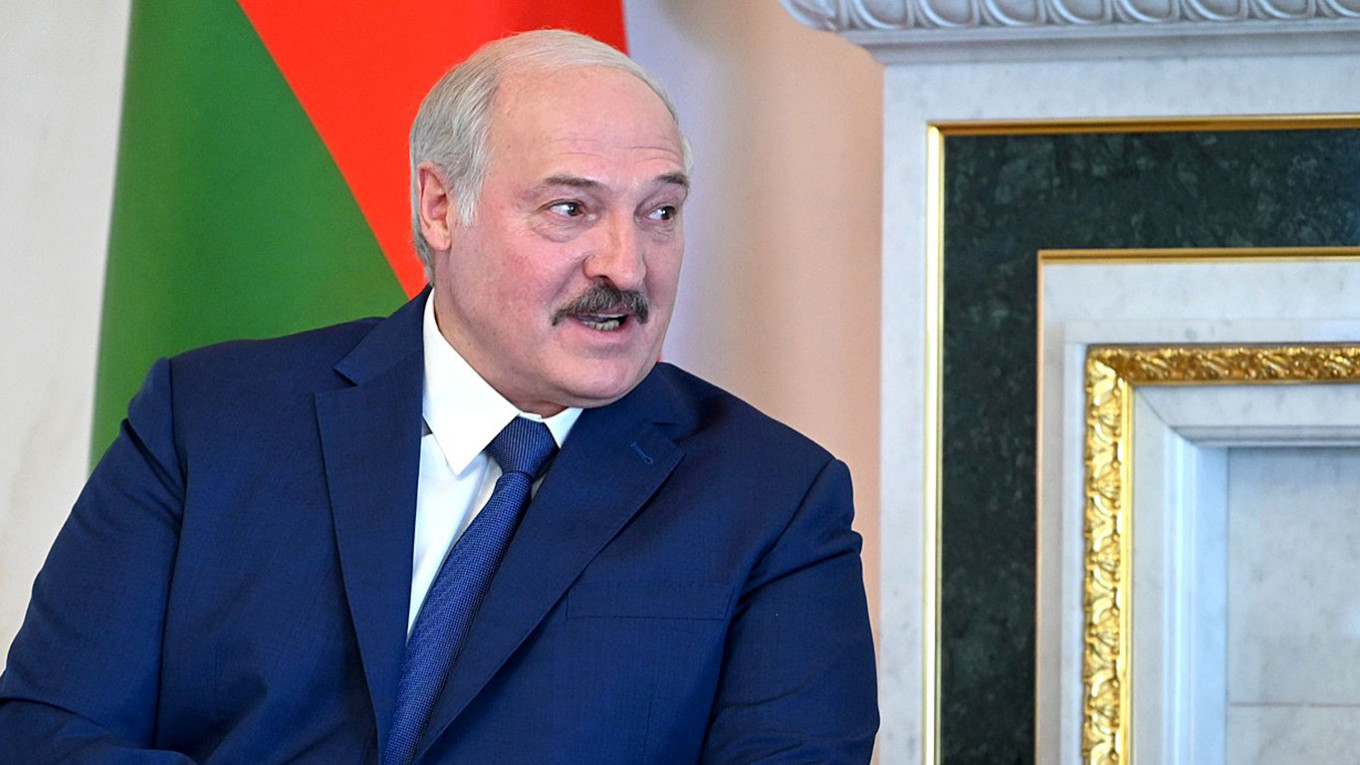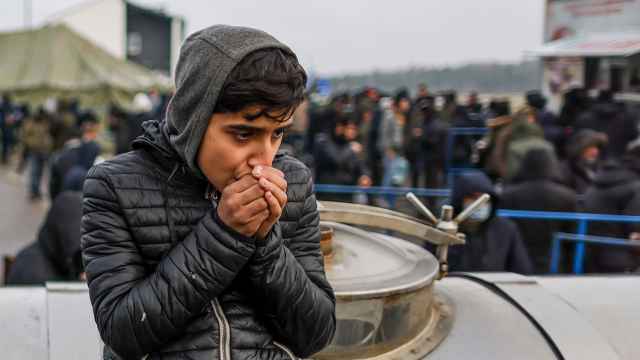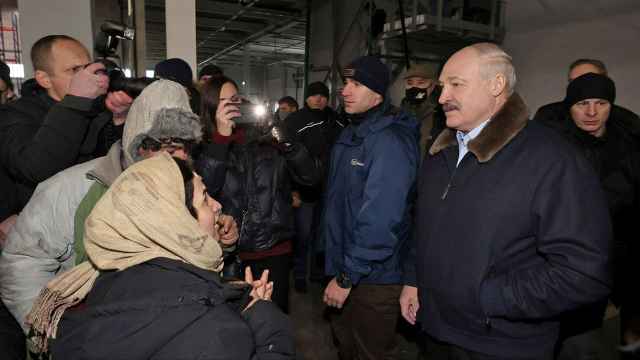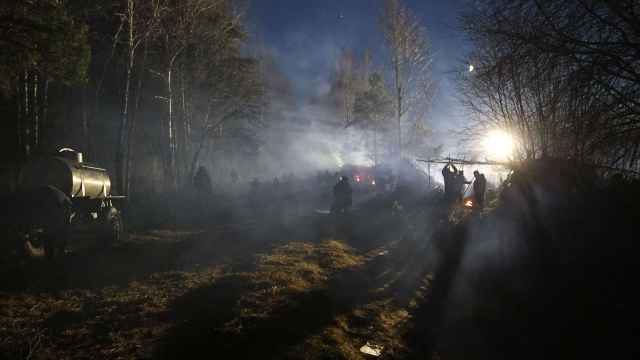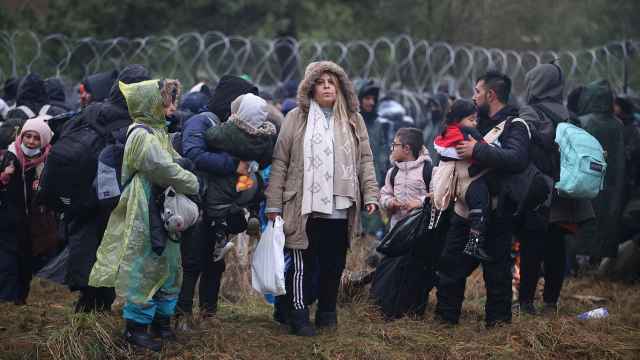Belarus is working to repatriate migrants massed on its border with Poland, President Alexander Lukashenko said on Monday, apparently aiming to defuse the crisis ahead of an EU meeting over new sanctions on the ex-Soviet country.
Migrants have been trying to cross from Belarus into EU member Poland for months, but tensions soared last week as coordinated efforts to cross were rebuffed by Polish border guards.
The EU accuses Belarus of sending the migrants to the border as retribution for earlier sanctions.
Belarusian TV showed hundreds of migrants, mostly from the Middle East and including dozens of children, crowded at a shut border crossing on Monday at the Polish village of Kuznica, after having spent the night huddling around burning logs in a makeshift camp.
Lukashenko's apparent olive branch came as foreign ministers of the 27-nation bloc were meeting on Monday to adopt new penalties over the crisis.
He said Belarus did not want the border situation to escalate into a "conflict" and that it was working to send home the several thousand migrants camping on its border with Poland.
"Active work is underway in this area, to convince people — please, return home. But nobody wants to go back," Lukashenko said, as quoted by state news agency Belta.
At the EU meeting on Monday, Lithuanian Foreign Minister Gabrielius Landsbergis said he had "no reason" to believe Lukashenko.
The Belarusian leader also suggested that Minsk could take up an offer by officials in Munich to ferry the migrants via its state-run airline Belavia to Germany if Poland does not provide a "humanitarian corridor."
"We will send them to Munich by our own planes, if necessary," Lukashenko said.
'Instrumentalization of human beings'
However, the Polish defense ministry said later on Monday that Belarusian forces were bringing groups of migrants to the Kuznica border crossing.
Belarus's state border committee rejected the accusation, saying the migrants had "self-organized" and that Belarusian border guards were present to "ensure safety."
Lukashenko denies accusations that he has organized the migrants on the border, saying Monday the situation was proving "expensive" for his country.
And he repeated warnings that Belarus would defend itself if new sanctions are imposed.
Belarus has faced waves of EU sanctions in response to a crackdown on the opposition after last year's presidential elections and Lukashenko's decision to ground a Ryanair flight earlier this year over Belarus to detain an activist.
The new penalties are expected to target around 30 Belarusian officials, the state airline and travel agencies.
The EU on Monday said it had amended its sanctions policy so it could respond to "the instrumentalization of human beings carried out by the Belarus regime for political purposes" by targeting individuals and entities facilitating the campaign.
Lukashenko, however, has so far weathered Belarus's growing isolation with the help of his main political and financial backer Moscow.
On Monday, the Kremlin continued to defend the Belarusian leader.
"Lukashenko is not creating the situation that is taking place at the border," Kremlin spokesman Dmitry Peskov told reporters.
Repatriation flight
Belarus says there are about 2,000 people in the migrant camp, including pregnant women and children, while Poland says there are between 3,000 and 4,000 migrants on the border.
Poland has refused to allow the migrants in — detaining 50 on Sunday after they entered the country — and has accused Belarus of preventing them from leaving.
Local police in Poland's Podlasie region on Monday said four Europeans had been detained during road checks for "aiding illegal border crossings."
Aid agencies say at least 10 migrants have died so far and have warned of a humanitarian crisis unfolding as temperatures drop below freezing.
There have been signs in recent days, though, that the crisis could relent.
Belavia has announced that nationals from a host of Middle Eastern countries were banned from incoming flights from Turkey and the United Arab Emirates at their request.
And on Monday, the Iraqi government said it was organizing a repatriation flight this Thursday for its citizens stuck on the Poland-Belarus border on a "voluntary" basis.
A Message from The Moscow Times:
Dear readers,
We are facing unprecedented challenges. Russia's Prosecutor General's Office has designated The Moscow Times as an "undesirable" organization, criminalizing our work and putting our staff at risk of prosecution. This follows our earlier unjust labeling as a "foreign agent."
These actions are direct attempts to silence independent journalism in Russia. The authorities claim our work "discredits the decisions of the Russian leadership." We see things differently: we strive to provide accurate, unbiased reporting on Russia.
We, the journalists of The Moscow Times, refuse to be silenced. But to continue our work, we need your help.
Your support, no matter how small, makes a world of difference. If you can, please support us monthly starting from just $2. It's quick to set up, and every contribution makes a significant impact.
By supporting The Moscow Times, you're defending open, independent journalism in the face of repression. Thank you for standing with us.
Remind me later.


